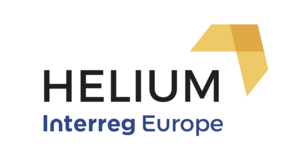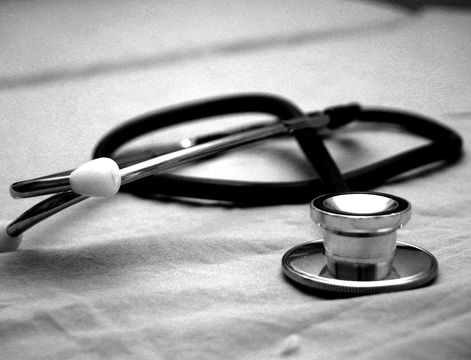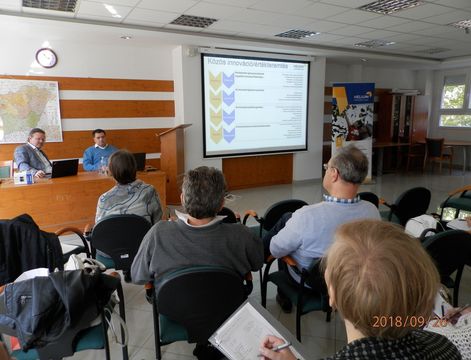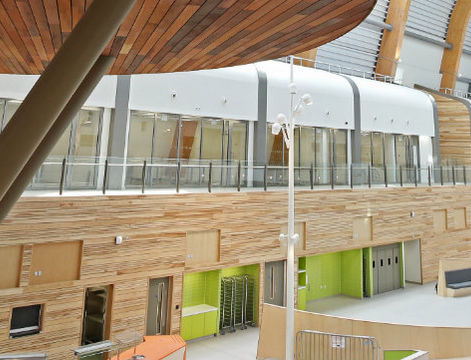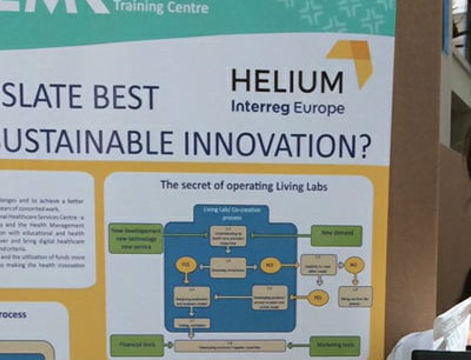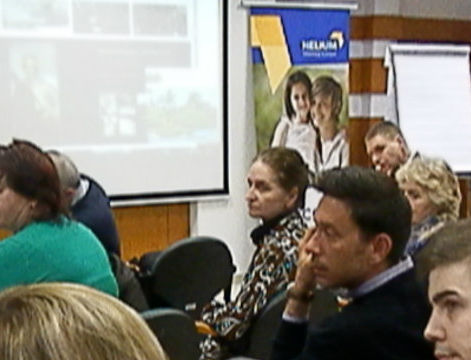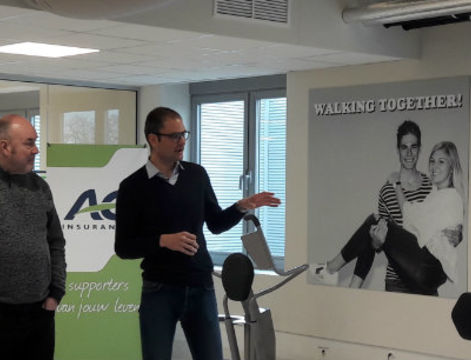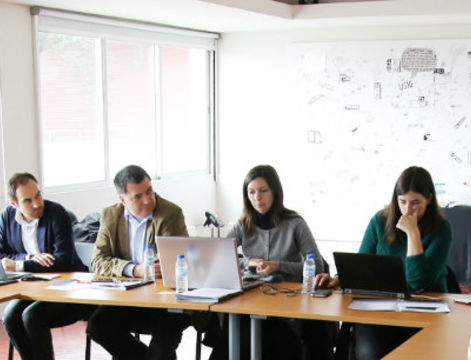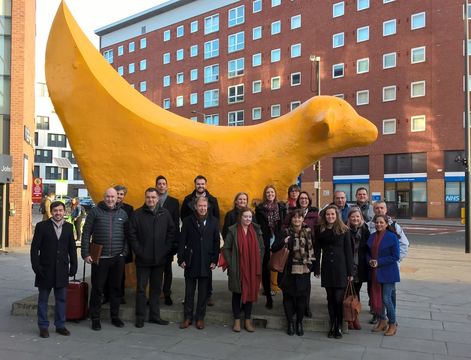The third Regional Stakeholder Group (RSG) meeting of the Interreg HELIUM (Health Innovation Experimental Landscape through Policy Improvement) project under the management of the Dutch Leading partner, was held in Budapest on 25th September 2017, in the organization of the Hungarian project partners, the Semmelweis University – Health Services Management Training Centre and the National Health Care Services Centre. On behalf of the host organizations, first Dr. László Németh, director-general of the National Healthcare Services Centre, then Dr. Miklós Szócska, director of the Health Services Management Training Centre greeted participants of the event.
During the meeting project partners gave an account on achieved progress within the project and gave an overview of the so far collected foreign and national good practices, which can serve as potential adapted models, and described the national Action Plan under elaboration, which aims to increase effectiveness of the Economic Development and Innovation Operational Programme – (EDIOP), by formulating recommendations that would create, boost and stimulate health innovation mechanisms, as well as could foster national adaptation of such innovation financing schemes/models, which are already identified “best practices” and operating well in other regions, or could assist and enable connectivity of innovation chains and mechanisms among regions, with special regard to open innovation value chains and “living lab” based methods.
HELIUM project has the objective to elaborate such policy recommendations, action plans and sustainable funding schemes-based on the cooperation of its partners- which will enable a more effective utilization and application of regional, national, EU and other public funding schemes and development policy resources dedicated to health innovation, fostering quality improvement and modernisation of preventive-medicine, rehabilitative healthcare services and innovation management incentives, boosting all the above. Upon successful completion of the project, recommendations will be formulated to modify certain funding schemes of EDIOP (call for proposals/ priority projects) or will suggest opening new special financing facilities or such financial engineering instruments, which make possible boosting and growing innovative products and services.

The Regional Stakeholder Group has a major role in reviewing and consulting professional documents developed in the framework of the project, as well as in elaboration of ad hoc recommendations, and in providing professional advocacy at national and international workshops and meetings. The R+D+I knowledge and experience acquired by the RSG members will be utilized and incorporated into the results of the project. The Hungarian RSG has been enlarged recently, in order to strengthen the industry, academic and civil helixes of the project. This way the third RSG meeting also provided the possibility of getting acquainted with the new members of the group in person. The opinions/recommendations coming from various organizations/bodies concerned in health innovations, development policy, and patients’ advocacy will be built into the national Action Plan, the completion of which will be the next milestone of the project. We received useful comments and inputs for the Action Plan at the meeting, which took place with the active participation of RSG members.
Helium project is carried out under the Interreg Europe programme, financed by the European Regional Development Fund, co-funded by the EU and the Hungarian State, and is implemented in collaboration of 5 European regions (Közép-Magyarország (HU), North West England (GB), Zuid Nederland (NL), Wlaams Gewest (BE), Continente (PT)).
